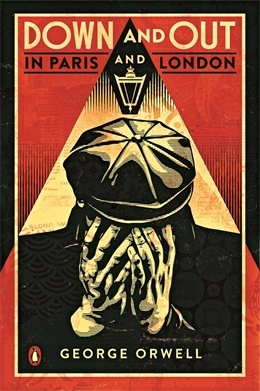
This is a spectacular memoir. It paints a very interesting picture of what must have been a very formative time in Orwell's life and also of what life is like for someone at the bottom of the food chain just trying to scrape by. In the final pages Orwell admits that he hopes this book is interesting to readers in much the same way a travel diary is, strangely enough it is interesting in very much the same way. Earlier in the book he says "We know that poverty is unpleasant; in fact, since it is so remote, we rather enjoy harrowing ourselves with the thought of its unpleasantness. But don't expect us to do anything about it." I don't think he's being critical of the reader, who most likely has never experienced poverty at this level and is reading this as they would read the National Geographic. I think he's just reached this conclusion in his meditations on poverty and doesn't hold any bad blood about it but rather understands that this gap can't be bridged even by describing the lowest points of poverty unless the reader has experienced it first hand.
Orwell spends the first half of the book describing his daily struggle to remain under a roof, secure food, and look for work. Once he finds work as a busboy he's still in this unending string of work and sleep with little room for anything so much as a stray thought until he finally leaves work as a busboy for opportunity in other areas. These first 116 pages (21 chapters) are an almost unbroken narrative, only with a few divergences for the sake of providing backstory for the characters and settings that are the backdrop for his story. Even calling these divergences isn't quite accurate, they're out of order but he only puts them in when they become relevant. It isn't until chapter 22 that he finally has left his profession as a busboy that the narrative breaks and Orwell puts in a deliberate pause, a brief moment to reflect on what that part of his life really meant, not simply what happened but what he thinks and feels about it. Its such a meaningful approach, he certainly could have inserted his thoughts many times throughout the narrative but it would have been revisionist because he really didn't have the time or energy to consider his place in the world when his every passing moment existed to simply make it to the next moment, hopefully a bit less hungry. When you are immersed into a life of poverty the plight of your situation doesn't really occur to you. There's only what's right in front of your face, not what next week will bring or what yesterday brought only what you have now and what you will have if you expend any of what you have.
Orwell does an amazing job of cataloging through the book what he has to his name at any given moment. He makes it clear that he was an avid journaler so his records of his belongings were probably pretty accurately documented in those journals. Being able to follow his net worth as it swings up and down from highs like 500 francs and a few pairs of clothes to lows like only a few cents and one pair of clothes. At his highs you feel as though things are turning around, you're relieved and you see the potential for a bright future. At his lows you feel a stress and hopelessness, you're genuinely worried for the man. Orwell does one of the best jobs anyone could ever do at capturing the experience of poverty and for that alone this book is a gripping work. This book is also a great window into what extreme poverty was like in the 1920s; a time we rarely read about in that context. Overall a well written and fascinating book.